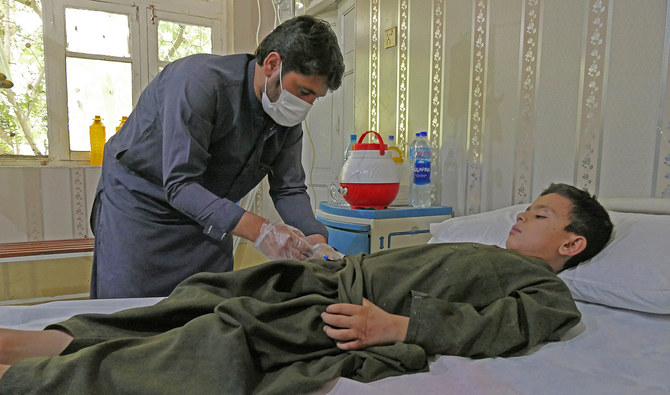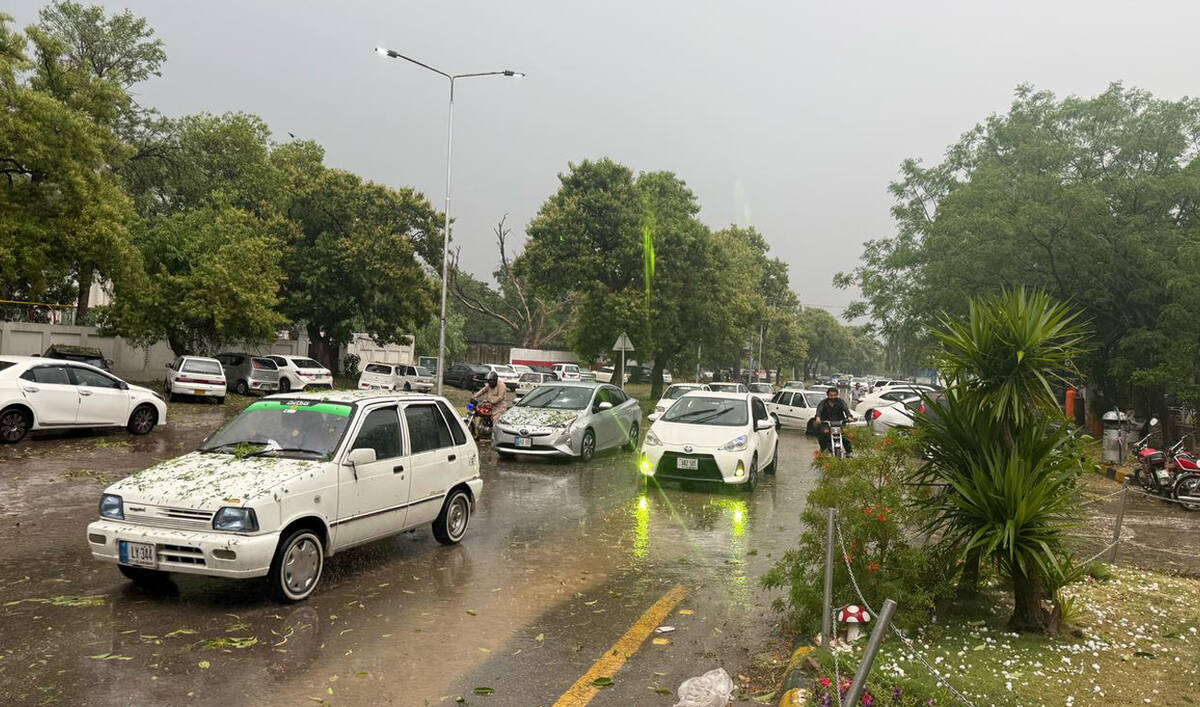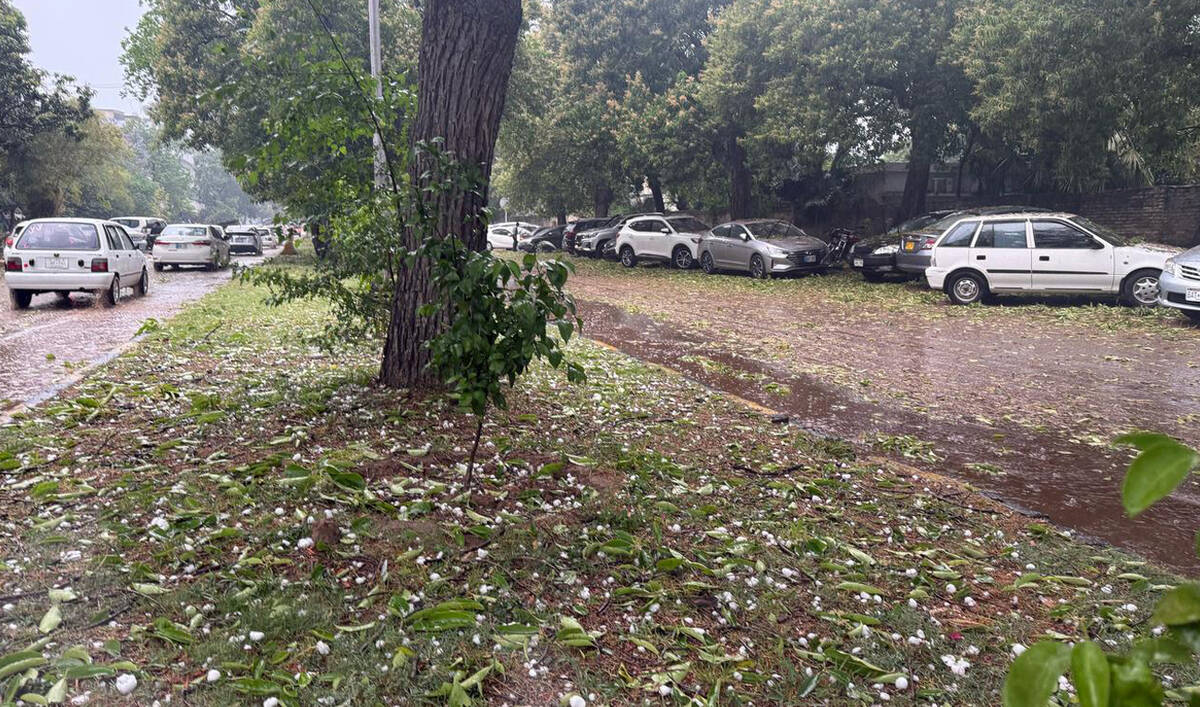QUETTA: Pakistan’s southwestern Balochistan province has identified two new cases of Congo virus, confirmed a senior doctor on Friday, adding that provincial health authorities were alarmed by the development since there were limited medical facilities in the region that were mostly dealing with the coronavirus pandemic.
Crimean-Congo Hemorrhagic Fever — or Congo virus — is an infectious disease transmitted by ticks to humans and animals. These ticks can also be found on the skin of goats, sheep, cows, buffalos and camels that are sacrificed by Muslims during the Islamic festival of Eid Al-Adha.
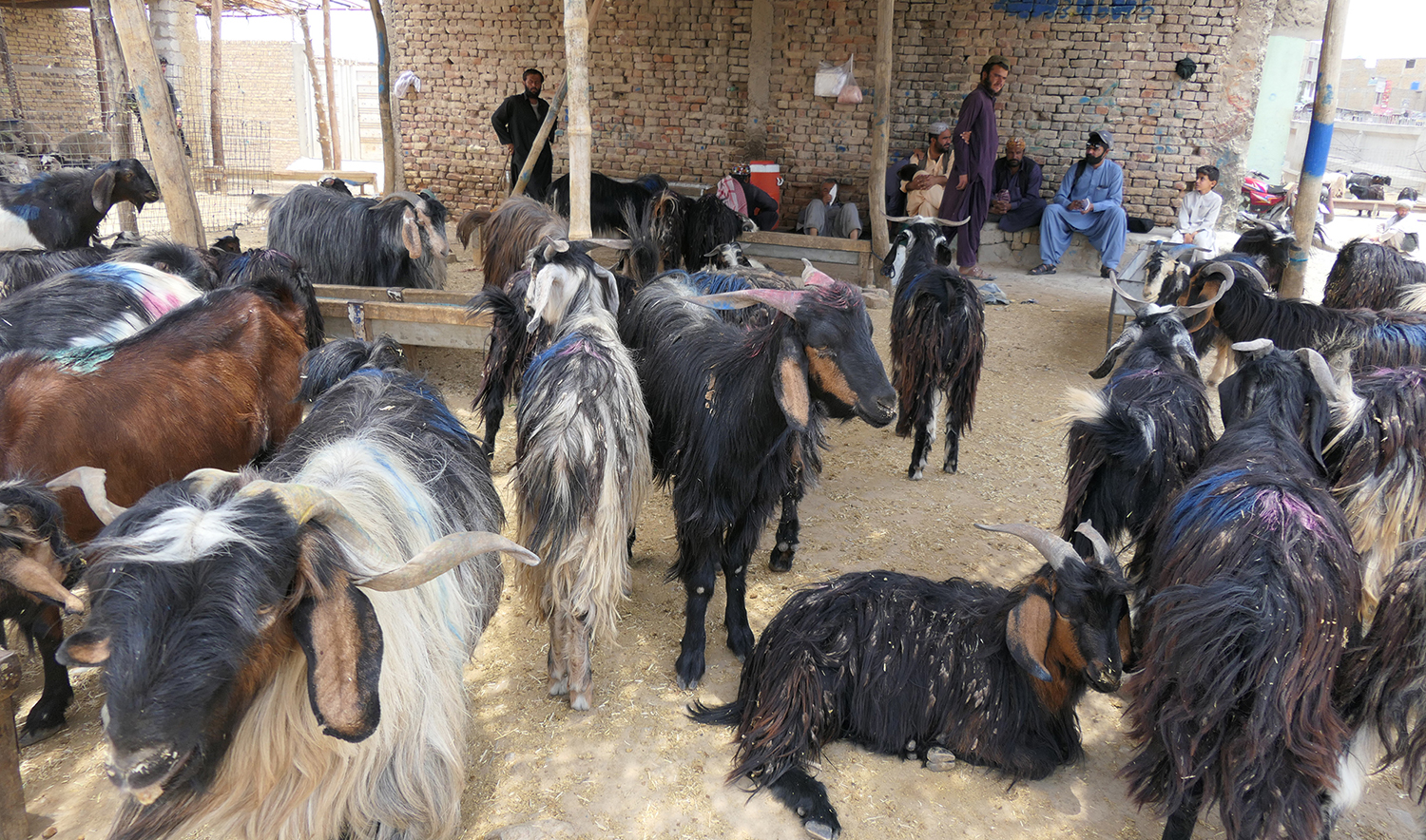
A herd of animals can be seen at a cattle market in Quetta on July 9, 2021. (AN Photo)
According to the World Health Organization (WHO), a Congo virus outbreak constitutes a threat to public health system since the disease can spread and has a high fatality ratio of 10 to 40 percent. The fatal Congo virus is still endemic in Africa and different parts of Asia.
“One of the patients who contracted the virus belonged to Loralai near the Pak-Afghan border area and had been discharged after getting medical treatment,” Dr. Sadiq Baloch, who works as additional medical superintendent at the Fatima Jinnah Chest Hospital in Quetta, told Arab News. “An 11-year-old boy from Chaman is still under treatment in the Congo Virus Isolation Ward.”
Baloch feared the situation could get worse in the province if necessary precautionary measures were not taken against the disease.
“With Eid Al-Adha less than two weeks away, cattle markets have emerged across the country,” he continued. “People must take safety precautions while visiting these places to buy animals.”
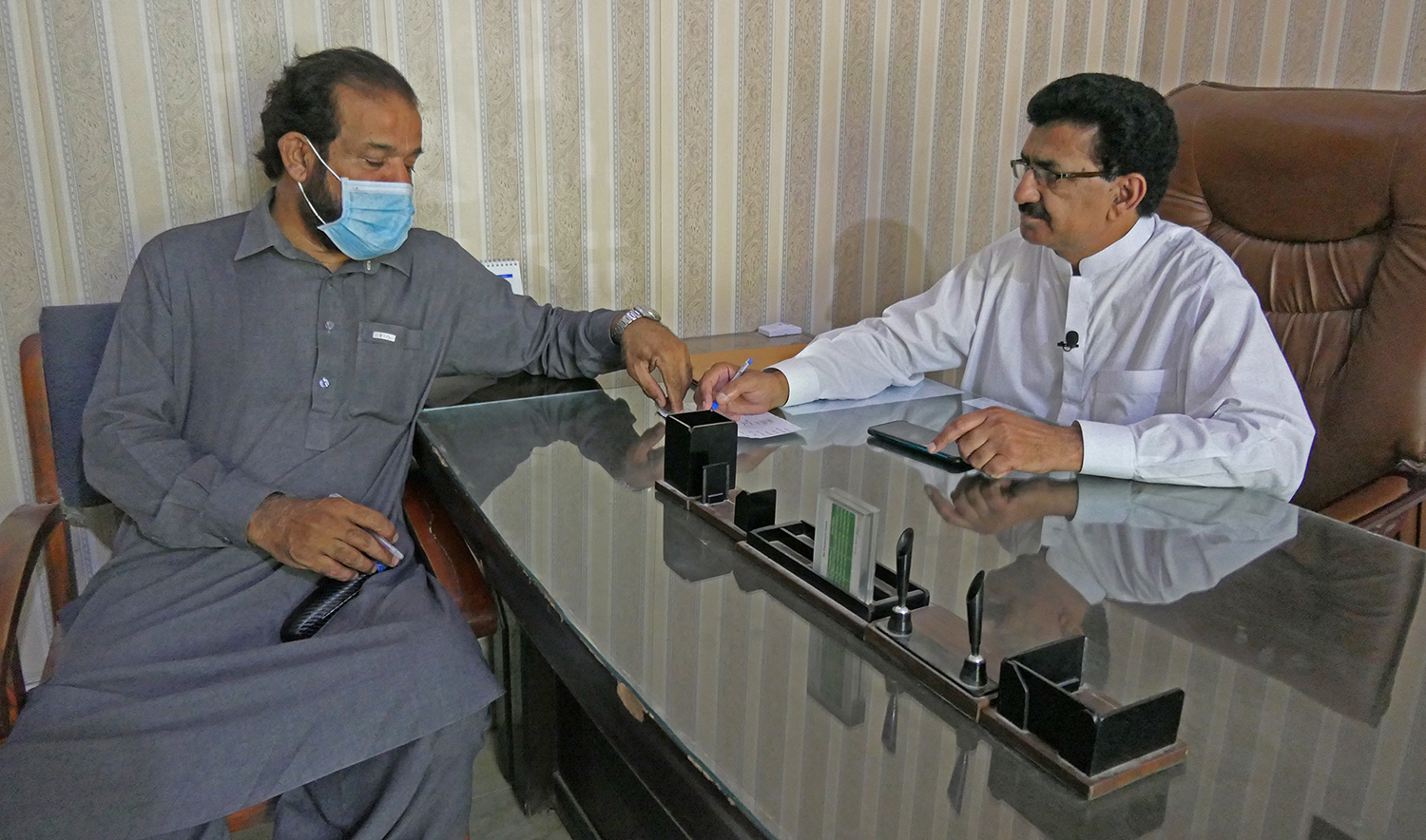
Two senior doctors of the Fatima Jinnah Chest Hospital, Dr. Sadiq Baloch (right) and Dr. Shams Dotani, can be seen together at their office in Quetta on July 9, 2021. (AN photo)
Dr. Shams Dotani, who supervises the hospital's Congo Virus Isolation Ward, said Balochistan had reported 27 virus cases in 2020, though everyone was more focused on COVID-19 and people did not pay much attention to the disease last year.
“Previously, we did not even have a proper lab to test people for Congo virus but now we have a functional facility where suspected patients can be tested,” he said. “Still, we need to educate people since a majority of our patients are brought here when they are in their last stages.”
11-year-old Abdul Nasir, who is currently undergoing medical treatment at the facility, was rush to the hospital five days ago by his family while he was suffering from nasal bleeding.
“My son was in a critical condition when we brought him to this place, but he is now recovering,” Haji Rahim, Nasir's father, told Arab News.
Medical professionals in Balochistan say they have witnessed an increase in Congo virus cases, saying nine patients suffering from the disease were only identified this year and four of them, including two butchers, had lost their lives.
“We used to treat Congo virus patients from Afghanistan in the past,” Dotani said. “But we have now been getting local patients from remote districts of Balochistan.”
Meanwhile, three major cattle markets have been established in Quetta ahead of Eid Al-Adha that have started attracting customers.
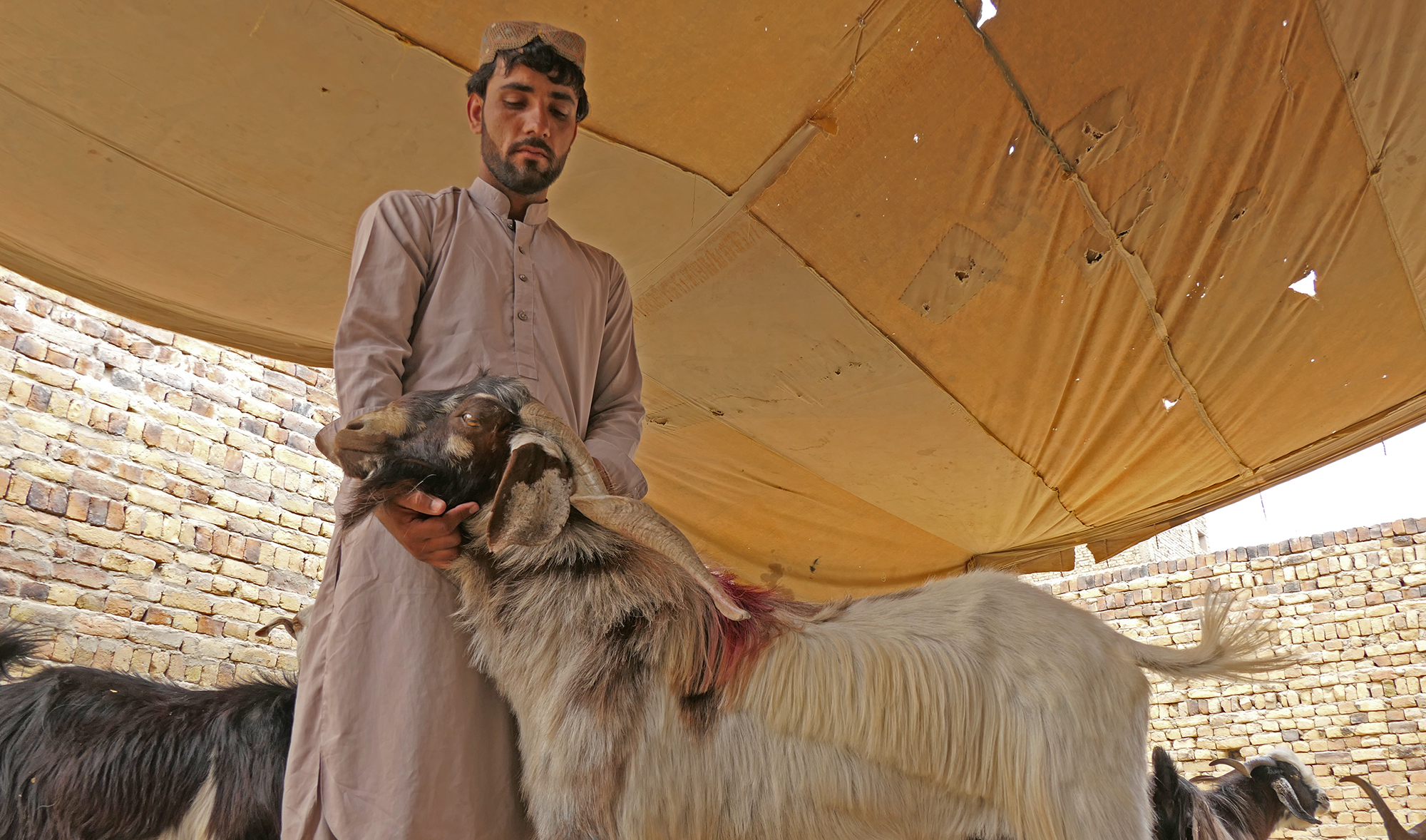
Rozi Khan, who has brought about 50 animals to a cattle market in Quetta, stands with a goat on July 9, 2021. (AN Photo)
Rozi Khan, who has brought about 50 sacrificial animals to one of these markets, requested the government to use anti-virus spray since “these ticks are harmful to both animals and customers.”
“We have been here for the last nine days, but officials of the livestock department have only visited us once with the anti-virus spray,” Khan told Arab News, adding they should spray the whole place on a daily basis to protect humans and animals from the deadly virus.


